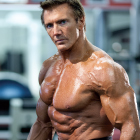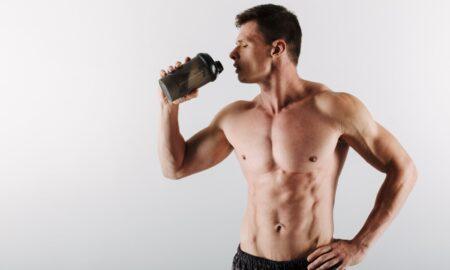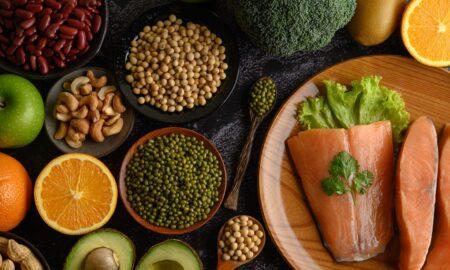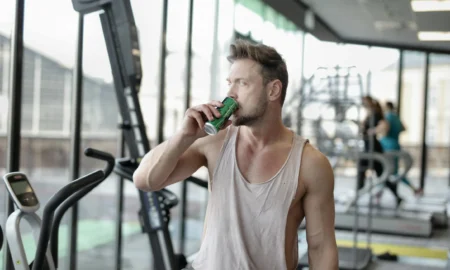 Q: In working with your many clients, do you find that some gain lean mass more on a moderate-carb, moderate-fat plan, as opposed to high carbs and lower fat? I’ve found that when I go too long on two grams of carbs per pound of bodyweight, I start to feel bloated, my digestion gets sluggish, and I get a bit of water retention. It doesn’t make me fat, and I don’t gain weight, which is weird. It clears up if I throw in some lower-carb days.
Q: In working with your many clients, do you find that some gain lean mass more on a moderate-carb, moderate-fat plan, as opposed to high carbs and lower fat? I’ve found that when I go too long on two grams of carbs per pound of bodyweight, I start to feel bloated, my digestion gets sluggish, and I get a bit of water retention. It doesn’t make me fat, and I don’t gain weight, which is weird. It clears up if I throw in some lower-carb days.
I usually train two days on and one day off. I’m thinking of trying to drop to around 1.5 grams per pound on training days and one gram per pound on the day off. My protein is normally around 1.75 to two grams—I have tried lowering it but only lowering carbs seems to alleviate the problem—and I have been keeping fats at half a gram. Should I experiment with increasing fats on both days to make up for the lost calories from carbs, more on rest days and a little less on training days? Have you found better results with some people by having them do that?”
A: Not everyone responds well to a high-carbohydrate diet. Typically, those who have faster metabolisms or a more ectomorphic bodytype will get more gains from eating more carbohydrates.
Even so, gaining or losing weight is not just about the macronutrients you eat but also the total calories. If you eat a moderate amount of carbs but your protein or fats are high, you may have trouble losing weight because you’re eating too many calories overall.
You may respond better to a diet that consists of only moderate amounts of carbs, with more protein and fat. The carb cycling you were doing—more carbs on your training days and fewer on your rest days—will probably work well for you. I did something similar years ago when I was dieting, taking in more carbs with my postworkout drink on training days and fewer when I wasn’t working out.
Our metabolism changes as we get older, probably due to our changing natural hormone levels, and we become likely candidates for accruing fat if we don’t cut our calories.
For example, when I was in my 20s and 30s, I ate as many as 5,000 calories a day in the off-season. When I started my diet for a contest, I would drop to 3,000 calories per day and get ripped. Now that I’m in my late 40s, I’m eating an average of 2,300 calories to get ripped—and I don’t even try to bulk up in the off-season because it will add too much bodyfat.
Years ago I tried a reduced-carbs diet because I could not get ripped eating 300-plus grams. I kept my protein and fats high and dropped my carbs, and it helped to get me leaner.
Last year, when I started my diet to get in shape for my IRON MAN cover shoot, I tried a completely different diet. I reduced my protein from 300 grams to only 225 and also cut back on my fats from 70 grams to only 40. Because of the reductions in my protein and fat, I was able to increase my carbs gradually.
In the beginning of the diet, I could only eat 180 grams of carbs with my 225 grams of protein and 40 grams of fat. As I began to lose fat, my metabolism increased, and I found I could increase my carbs. By the time I left for my photo shoot, I was eating 350 grams of carbs a day, and I was super ripped!
For me, eating a high-carb diet worked—as long as I decreased my protein and fats. For others higher carbs may not work as well.
The same works with gaining weight and muscle mass. When I was younger and bulking up, I would eat moderately high protein—about 1.25 grams for each pound of bodyweight—along with a very high carb intake. At 230 to 240 pounds, I’d be eating 600 to 700 grams of carbs a day.
Getting more complex carbs helped to increase my energy, so I was able to lift the heaviest weights and also gain more weight and muscle. If you feel that eating more carbs is making you feel sluggish, you can do the carb cycling or just reduce your carbs and make up for the calorie deficit by increasing your fats and protein.
Editor’s note: John Hansen has won the Mr. Natural Olympia and is a two-time Natural Mr. Universe winner. Check out his Web site at www.NaturalOlympia.com for more information about how you can be a part of his exciting, new Natural Olympia Fitness getaway. Send questions or comments to John@NaturalOlympia.com. Look for John’s DVD, “Natural Bodybuilding Seminar and Competitions,” along with his book, Natural Bodybuilding, and his training DVD, “Real Muscle,” at his Web site or at Home Gym Warehouse, www.Home-Gym.com. Listen to John’s radio show, Natural Bodybuilding Radio, at NaturalBodybuildingRadio.com. IM




















You must be logged in to post a comment Login